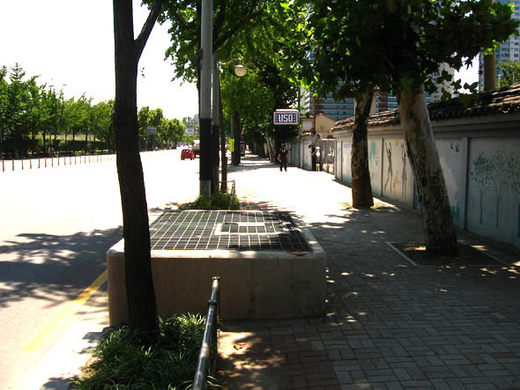 |
|
An underground electricity-supply facility in front of Camp Kim at Yongsan Garrison, Seoul, where oil leakage was alleged to be found.
|
Slow response paved way for U.S. unilateralism on environmental issues
South Korea received notice in June from the United States that Washington would return 19 bases for which negotiations between the two countries on environmental cleanup had not yet been completed. However, it was found that the government did not take any measures regarding the unresolved cleanup issues until the ROK-U.S. Security Policy Initiative meeting in July. Because of Seoul's lack of response to Washington's initial notice, the U.S. claimed that the Korean government had accepted its policy on the 19 bases, which it has since completed returning. Experts predict that this will make it difficult for Seoul to request that Washington take responsibility for the environmental contamination at the remaining 40-some military bases to be turned over by 2011. According to data submitted by the Ministry of Environment to the National Assembly on July 24, a letter which U.S. Deputy Undersecretary of Defense Richard Lawless sent to the South Korean Ministry of National Defense on June 15 said, "The U.S. will hand over documents and keys related to relocation of the 19 bases on July 15. The turnover of the bases will have been made at noon on that day." As the U.S. measure defied base turnover procedures previously agreed by the two nations regarding base cleanup, as well as the number of bases to be handed over, it was naturally expected that Seoul would take countermeasures. However, no countermeasures were taken immediately following the receipt of the letter.When The Hankyoreh requested that the Ministry of Environment confirm the lack of reaction from Seoul, ministry officials maintained until recently that as far as they knew, the government decided to cope with the situation after consultation with related ministries, at which point the Defense Ministry sent a letter refuting the U.S. position. However, The Hankyoreh confirmed yesterday that the concerned ministries held at least two meetings from June 21 and discussed countermeasures, but they had not done anything further on the matter. A Defense Ministry official told The Hankyoreh on August 21, "We discussed countermeasures, but we haven't made any decisions. Even if we had sent a letter refuting the U.S. measure, the situation would not have changed." The official asked not to be named. Remarks by officials from the environmental and defense ministries mean that the Ministry of National Defense ignored a decision made at a consultation meeting of related ministries, or that the Environment Ministry went to the negotiating table without understanding important contents in connection with the negotiation. If either of these scenarios is confirmed, further controversy will erupt over who is responsible the government's lag in reaction to an important matter. The U.S. has used the Korean side's keeping mum as a vehicle for effecting its one-sided turnover policy. The U.S. ignored an agreement made with the South at July's SPI meeting - at which the two sides agreed upon the return of 15 bases - and claimed it had completed return of 19 bases. It based its completion of the handover on the U.S. side's letter to Seoul; the remaining four bases were added unilaterally by the U.S. side at the last minute. As a result, successive consultation over the agreed-upon 15 bases continues to face rough going. In addition, regarding the U.S. position in the future, a South Korean government official said, "The U.S. strategy is that it will handle return of other bases in a same way, using the 'Lawless letter' " as a means for unilateral handover. Rep. Dan Byung-ho of the minority Democratic Labor Party and member of the National Assembly's Environment & Labor Committee, said that "the government helped the U.S. strategy along by not immediately coping with the 'Lawless letter.' This matter should be completely clarified" at a National Assembly session, he added.






